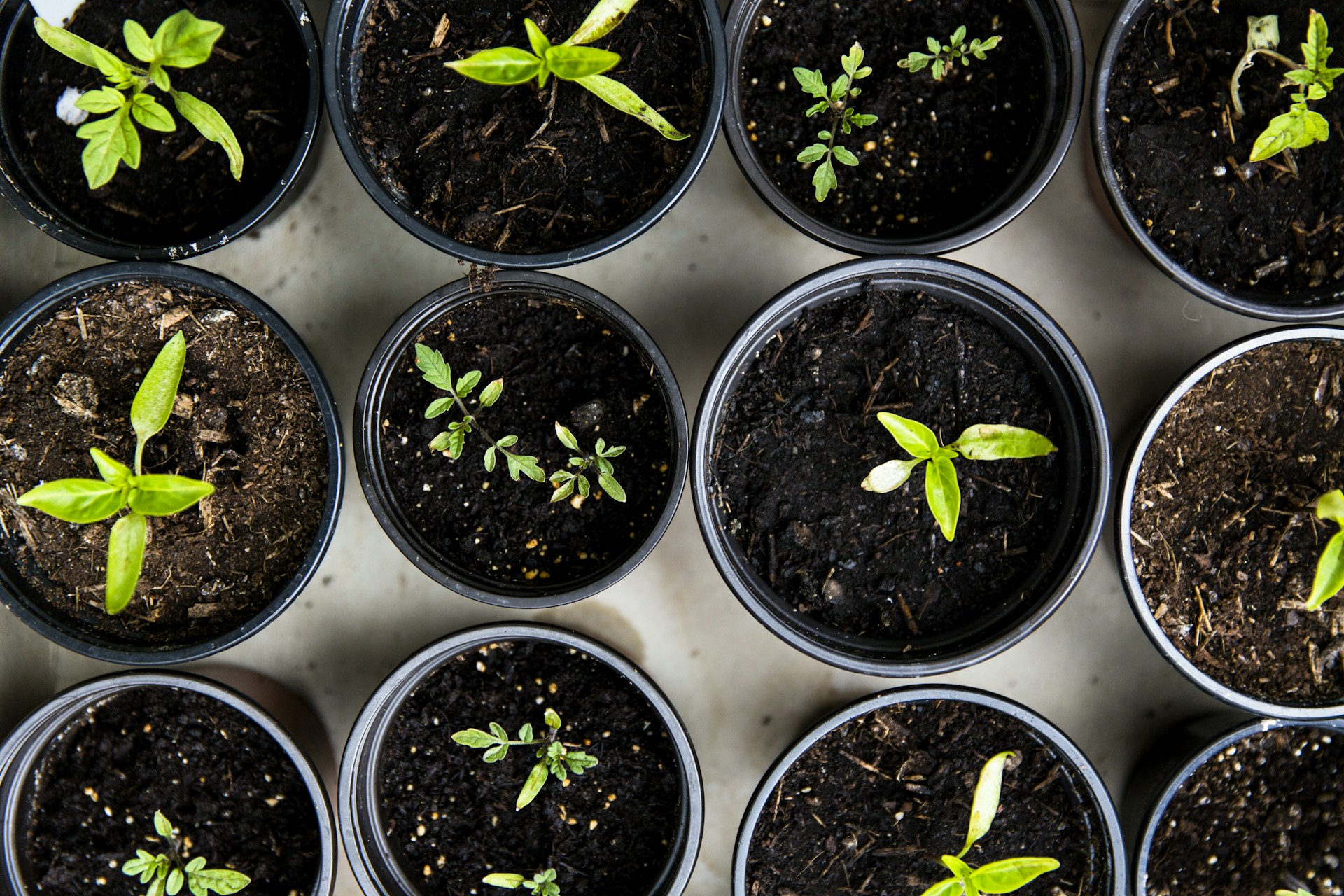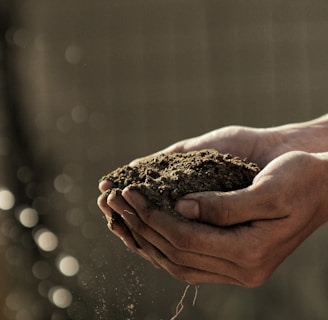
Understanding the Basics of Soil Health
New to gardening? Learn the basics of soil health and why it matters. This beginner-friendly guide explains what makes soil healthy and offers simple tips to improve your garden’s foundation for stronger, more resilient plants.
SOIL HEALTH & COMPOSTING
P + P
6/27/20253 min read


Understanding the Basics of Soil Health
A beginner’s guide to what makes healthy soil and why it matters for your garden.
Disclosure: As an Amazon Associate, I earn from qualifying purchases. Some of the links in this post may be affiliate links, which means I may earn a small commission at no extra cost to you.
When we think about gardening, we often focus on the plants—what to grow, where to plant, and how to water. But beneath it all is the unsung hero of every healthy garden: the soil.
Healthy soil isn’t just “dirt”—it’s a living ecosystem that supports your plants’ growth, nutrition, and resilience. Whether you're planting herbs on a balcony or growing vegetables in raised beds, understanding soil health is essential for gardening success.
This guide breaks down the basics of soil health—what it is, why it matters, and how you can start improving it today.
🌱 What Is Soil Health?
Soil health refers to how well the soil functions as a living, breathing environment for plants, microbes, and organisms. Good soil is teeming with life, well-structured, and rich in nutrients and organic matter.
Think of it as the foundation of your garden’s ecosystem. When soil is healthy, plants grow stronger, pests are less of a problem, and watering becomes more efficient.
🧪 The 5 Key Components of Healthy Soil
1. Organic Matter
Decomposed leaves, compost, and manure enrich the soil with nutrients and help retain moisture. Organic matter also feeds beneficial microbes and fungi.
2. Soil Structure
Healthy soil has a crumbly, loose texture that allows air and water to move freely. Compacted or clay-heavy soil can suffocate roots and lead to poor drainage.
3. Microbial Life
Bacteria, fungi, and earthworms break down organic material, cycle nutrients, and improve soil structure. These tiny organisms are crucial for plant health.
4. Moisture Balance
Healthy soil holds onto water without becoming soggy. It provides consistent moisture for plants while also draining excess water effectively.
5. Nutrient Content
Soil should provide essential nutrients like nitrogen (N), phosphorus (P), and potassium (K), along with trace minerals like calcium and magnesium.
🌿 Tip: A basic soil test kit can tell you where your soil stands with nutrients and pH.
🪴 Why Soil Health Matters
Better plant growth: Healthy roots = thriving plants.
Fewer pests and diseases: Strong plants are more resilient.
Less water and fertilizer waste: Healthy soil retains water and nutrients better.
Improved sustainability: Supports pollinators, reduces runoff, and encourages biodiversity.
More flavorful and nutritious crops: Healthy soil = healthier food.
🧤 How to Improve Soil Health (Even as a Beginner)
1. Add Compost Regularly
Compost is the best all-around booster for soil. It feeds microbes, improves texture, and adds nutrients. Spread a layer on top of your soil each season.
2. Avoid Tilling Too Much
Over-tilling disrupts the delicate soil ecosystem. Stick to light turning or no-dig methods where possible to protect microbial life.
3. Mulch
Organic mulch like straw, leaves, or wood chips helps regulate moisture, reduce weeds, and slowly decompose into organic matter.
4. Grow Cover Crops (or Rotate Crops)
If you have garden beds, plant cover crops like clover or ryegrass during off-seasons to replenish nutrients and prevent erosion.
5. Water the Right Way
Water deeply and less often. Shallow, frequent watering encourages weak roots and water waste.
🧪 Should You Test Your Soil?
Yes! A basic soil test tells you your pH (acidity/alkalinity) and nutrient levels. Most plants prefer a neutral pH (6.0–7.0). If your soil is too acidic or alkaline, you may need to adjust it with lime or sulfur. We test our soil every season to see where its at, its also great to know so you can diagnose better is you run into problems with growth or disease. We use a simple 4-in-1 solid tester that can test for light intensity, moisture, pH and plant temp. https://amzn.to/44hXoDS
You can use:
A home test kit
Your local cooperative extension office
A professional lab for detailed analysis
🌸 Container Gardening? Soil Health Still Matters
If you're growing in pots or raised beds, use high-quality potting mix enriched with compost. Refresh your mix each season, and avoid using “garden soil” in containers—it’s too dense and often poorly drained. As always we recommend Fox Farms Sea Forrest potting mix for use in containers. It has an ideal mix and rich nutrients while balancing moisture retention. https://amzn.to/4kehEfx
Final Thoughts
Healthy soil is the secret behind every flourishing garden. By understanding and nurturing the life below the surface, you’ll grow stronger plants, waste less water, and build a garden that thrives naturally.
So go ahead—feed your soil, not just your plants—and watch your garden transform from the ground up.
